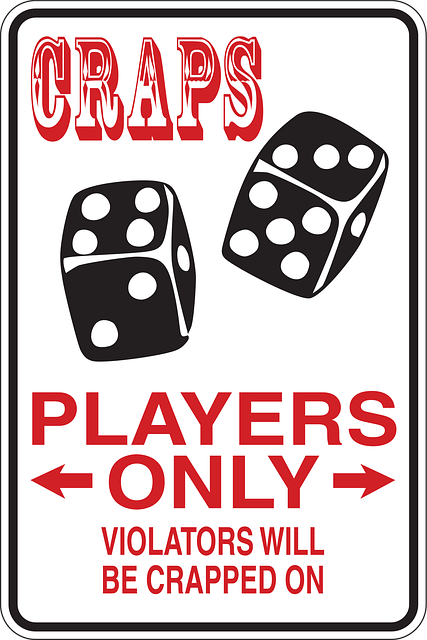Navigating EU Gambling Laws: Strategies for Compliance and Growth

The Gambling Laws EU framework regulates gambling across member states, balancing economic growth an…….
Welcome to an in-depth exploration of the intricate world of Gambling Laws EU, a comprehensive regulatory framework shaping one of the most dynamic sectors globally. This article aims to guide readers through the key aspects, trends, and implications of these laws, shedding light on their far-reaching impact. By delving into this topic, we hope to equip individuals with a thorough understanding of the European gambling legal ecosystem and its role in fostering responsible gaming while driving economic growth.
Gambling Laws EU, or European Gambling Regulations, refer to the collective set of laws, directives, and policies governing the online and offline gambling industry within the European Union (EU). These regulations are designed to ensure fairness, consumer protection, and responsible gaming practices across all member states. The core components include:
The evolution of Gambling Laws EU can be traced back to the early 2000s when the online gambling industry began to flourish. As more countries adopted legalized and regulated gambling, the need for standardized rules became evident. The EU’s single market principles played a pivotal role in harmonizing these laws, ensuring fairness across borders.
These regulations are significant for several reasons:
The EU’s gambling laws have a significant global impact due to the union’s influence in international gaming forums and its vast market size. Many non-EU countries model their regulations based on EU standards, creating a ripple effect worldwide.
Gambling laws vary across EU member states, reflecting cultural differences and historical contexts:
| Country | Key Features | Regulatory Body |
|---|---|---|
| UK | Comprehensive regulations with distinct rules for online and land-based casinos. Strict licensing requirements and a well-established self-exclusion system. | Gambling Commission |
| Germany | Licensing and taxation vary between states, with a focus on consumer protection and responsible gaming. Online gambling is legal but heavily regulated. | State-level regulatory bodies |
| Spain | Centralized regulation with a strong emphasis on tax revenue. Strict age verification and anti-fraud measures in place. | Dirección General de Ordenación del Juego (DGOJ) |
| Italy | A unified legal framework with specific provisions for online gaming, sports betting, and land-based casinos. | Agenzia delle Dogane e dei Monopoli |
The European gambling market is one of the largest globally, generating revenue in excess of €90 billion (as of 2021). Online gaming accounts for a significant portion of this, with sports betting and casino games leading the way. The industry’s growth rate has been impressive, projected to reach €108.7 billion by 2025.
Gambling Laws EU influence investment decisions significantly:
Revenue generated from gambling activities contributes to national economies:
The digital age has brought about rapid changes in the gambling industry, with online casinos, sports betting platforms, and mobile gaming applications becoming mainstream. This evolution poses both challenges and opportunities for regulators:
Regulators are responding by updating laws and introducing new directives:
Gambling operators must obtain licenses from competent authorities in their respective jurisdictions. These licenses come with specific conditions, including:
Non-compliance with Gambling Laws EU can result in severe consequences:
EU regulations mandate robust AML/CTF measures for gambling operators:
The EU actively collaborates with international partners to combat illicit financial activities:
The GDPR, a landmark data privacy law, applies to gambling operators and sets strict standards for handling personal data:
Gambling operators invest heavily in cybersecurity to protect player data:
The EU encourages member states to adopt a public health approach to problem gambling, focusing on:
The EU facilitates collaboration among member states through:
The rise of blockchain technology and decentralized finance (DeFi) is transforming the gambling industry:
Mobile gambling continues to grow, driven by increasing smartphone penetration:
Advancements in data analytics and artificial intelligence (AI) are shaping personalized gaming:
Gambling regulation in Europe is a dynamic field, constantly evolving to keep pace with technological advancements, social changes, and international standards. The future of gambling in Europe will be shaped by the successful integration of these emerging trends while maintaining a robust regulatory framework.
Striking a delicate balance between fostering innovation, protecting consumers, and ensuring revenue generation is essential for sustainable growth. Regulators must adapt to new technologies, address evolving consumer behaviors, and collaborate internationally to combat illicit activities effectively. By doing so, they can create a vibrant, safe, and fair gambling environment across the EU, catering to a diverse range of European citizens while upholding the highest standards of integrity.

The Gambling Laws EU framework regulates gambling across member states, balancing economic growth an…….

The Gambling Laws EU have undergone significant changes, creating a diverse yet unified regulatory f…….

The Gambling Laws EU framework harmonizes online gambling across the European Union, promoting fairn…….

The Gambling Laws EU create a structured regulatory environment for online and offline gambling acro…….

The Gambling Laws EU establish a regulatory framework for online gambling across member states, bala…….

Gambling Laws EU vary across Europe due to differing cultural attitudes and historical contexts, wit…….

The Gambling Laws EU represent a complex regulatory framework, balancing industry growth with consum…….

The Gambling Laws EU present a diverse regulatory landscape with minimum standards set by the EU, wh…….

The Gambling Laws EU present a complex landscape for businesses aiming to operate within the Europea…….

The Gambling Laws EU have evolved to balance economic growth and protect citizens from gambling harm…….